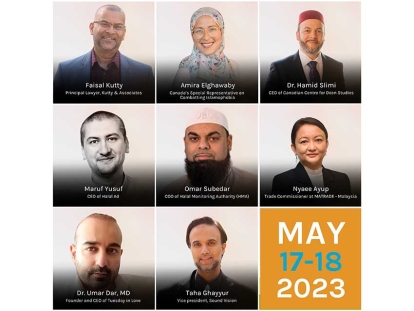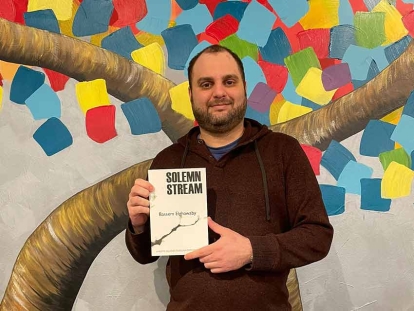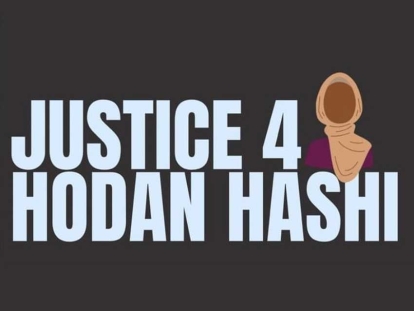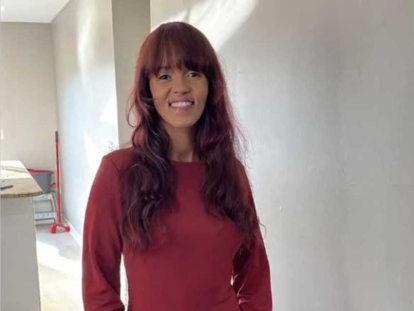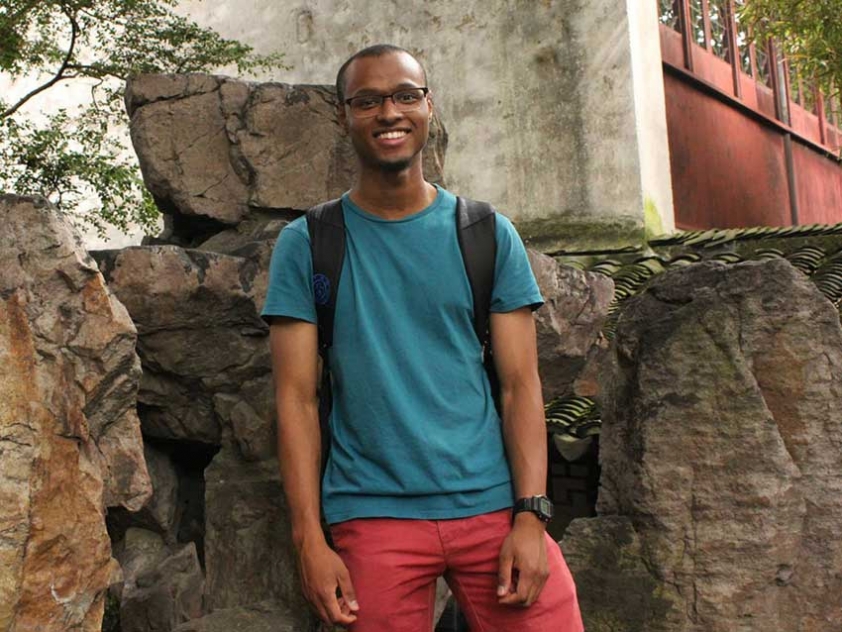 Mahdi Hassan during his research internship in China.
Courtesy of Mahdi Hassan
Mahdi Hassan during his research internship in China.
Courtesy of Mahdi Hassan
Nov
Somali Canadian Mahdi Hassan studies Biomedical Sciences at the University of Ottawa. He plans to pursue a career in pediatric medicine. In his teens, he was diagnosed with Type 1 Diabetes.
How did you find out you had Diabetes?
When I was in Grade 10, I lost a lot of weight and my mom knew a little bit about Diabetes because it did run in our family. I thought nothing was wrong with me. I was like “I’m thirsty all the time but that’s okay!” But my mom checked my blood sugar and found that I had a blood sugar level two or three times above the human normal. She took me to the hospital and they diagnosed me with Type 1 Diabetes.
How did you react to your diagnosis?
I think everyone starts off with a sense of denial. My parents didn’t understand a lot about Diabetes so they just thought I needed to eat healthier and drink a lot of Tropicana Orange Juice because it was more ‘real’. So it was a steep learning curve. When you are diagnosed at that age, the Children’s Hospital of Eastern Ontario (CHEO) offers a course so you can learn about Diabetes so I attended that. It teaches you how to keep your blood sugar normal and avoid the potential body changes that can come with having Diabetes.
Do you feel that the public has a lot of misconceptions about Diabetes?
I don’t think a lot of my peers understand much about Diabetes based on the questions they ask me. Like someone might say “Oh, you have Diabetes so you can’t have some of my Skittles.” And I’m like “No, I do want some of your Skittles.” I also get a lot of “Oh, is it because you ate a lot of cake as a child?” and I’m like “No, I probably ate as much cake as you.” There are a lot of ideas out there that Diabetes is a consequence of a bad diet and bad choices you made as a child. That’s one big misconception people generally hold.
Other people seem to think that Type 1 Diabetes is about Genetics and Type 2 is about Diet but the interesting thing is that I know that if you actually look at the genetic correlations in the genome of someone who has Type 2 Diabetes compared to someone who has Type 1 Diabetes, Type 2 is actually more genetically related than Type 1 is.
I don’t want people to think that with Type 1 it just happened and with Type 2 you did something to deserve it. I don’t think anyone does something to deserve Diabetes. It’s not Black and White; it’s actually really complicated.
Part of the reason why I have this interest in medical research and what I hope to accomplish with my research some day is dealing with these misconceptions. If you just empathise for a second with someone who has been diagnosed with Type 2 Diabetes and the impact on their health and the physiological changes they experience, are you are going to tell them it’s all their fault? Knowing what I have experienced with Type 1 Diabetes, I could never do that.
Why do you want to be a pediatrician?
After I was diagnosed with Diabetes, I got to meet a really awesome pediatric endocrinologist (a doctor who specialized in hormones) and he really is by far one of the most amazing people I met in my life and he has had a profound impact on my understanding of Diabetes.
One day I came in and I had a specific question about Diabetes and he brought out a blank piece of paper and he drew a picture of a pancreas and the different types of cells in the pancreas. Now, I was in Grade 11, so a lot of this was going over my head but then he broke it down so that I could understand. I really appreciated that he took the time to explain it to me. He could have just said “Well, that’s just the way it is-watch out for your blood sugar!” and not bothered to explain it.
Also, the second year I had Diabetes I was trying to figure out whether I could fast for Ramadan, and I was googling it and people were saying different things-most people were saying don’t. So I asked him if I could fast for Ramadan and he said, “If you decide to fast, I’m here to support you.” and he walked me through how I could do it. I really appreciated that.
Part of the reason why I want to go into pediatrics is because I want to be a source of inspiration and support to other kids the way he was to me. He is also both a pediatrician and a medical researcher and that’s what I want to do too.
How have you managed fasting for Ramadan?
Over the last six to seven years, I have managed to fast during Ramadan. I might miss some days if my blood sugar is too low but then I can just make them up. But last year, I was in China doing a summer research internship, and the hours were really long so it was too hard for me physiologically. So, now I plan to just fast during the winter and I have asked some imams and they say that is okay.
What advice would you give to a teen who is diagnosed with Diabetes?
Don’t allow Diabetes to hold you back from anything that you want to do. Don’t let it ever restrict you from doing something. You might have to modify how you do things but that’s okay. That’s just how life is. But it should never be a reason why you don’t do something.
Physical activity is very important when you have Diabetes so you should try your best to stay active. I go to the gym several times a week. But really everyone should be active. I just see that as a way we should be engaged with our physical being.
To learn more about Diabetes visit The Canadian Diabetes Association
This article was produced exclusively for Muslim Link and should not be copied without prior permission from the site. For permission, please write to info@muslimlink.ca.
